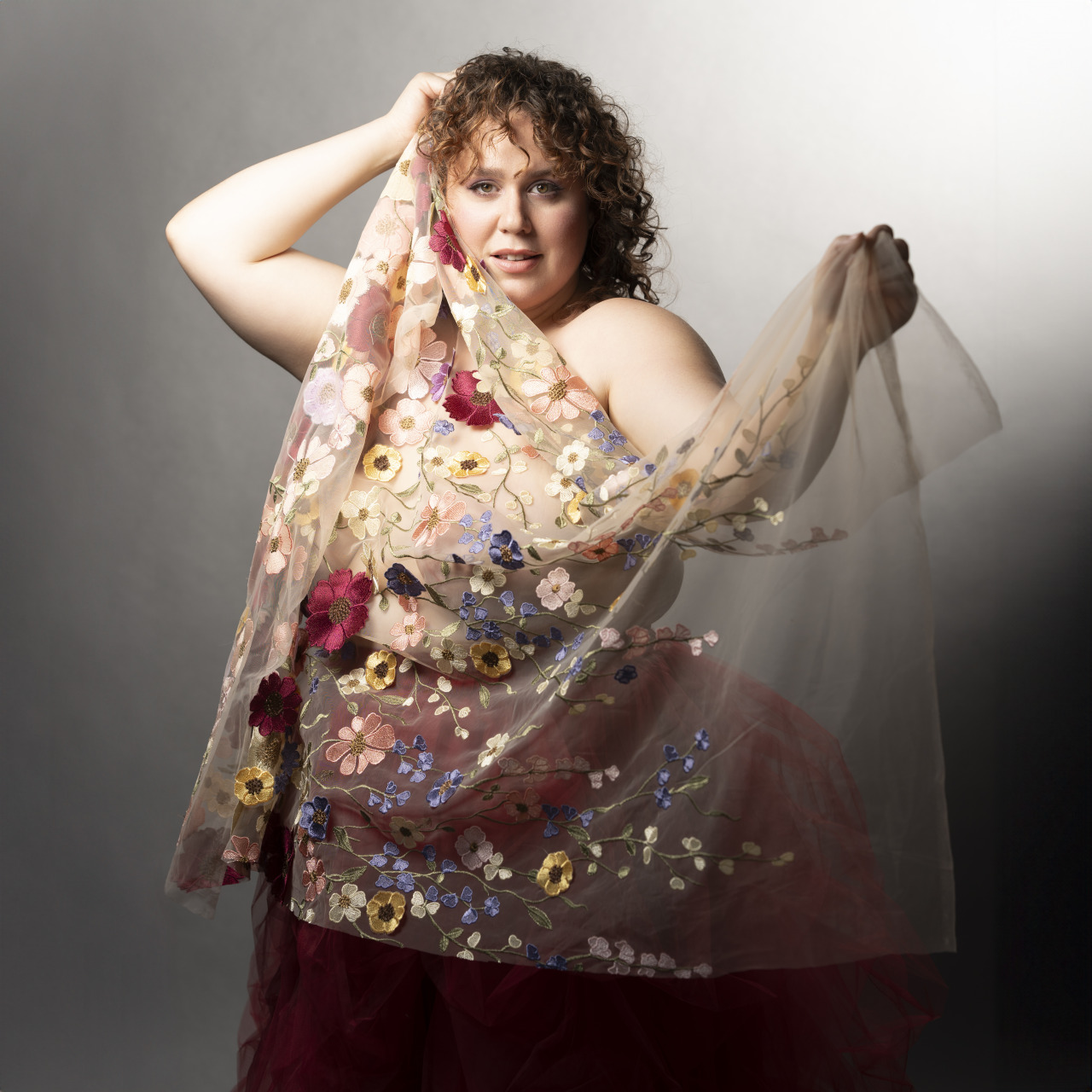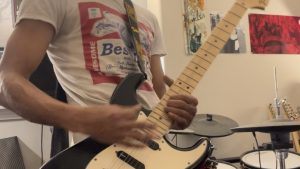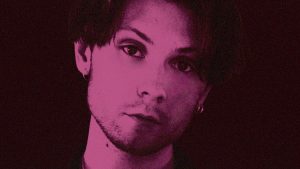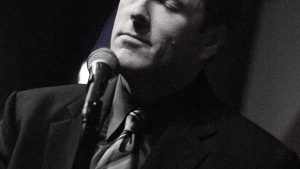
Interview w/ Ariel Arbisser on Self-Reflection & Her Album ‘Ingenue Corrupt’
Thanks for chatting with me! Your most recent single “On My Knees” tackles some heavy but important themes such as autonomy and self-discovery. Personally, I think it’s one everyone should hear. How did your own journey influence the creation of this song?
I enjoy a little power play in the bedroom, but started questioning everything while processing my abuse. I worried it was this inclination that led me to such unhealthy relationships even though the dynamic was never introduced in most of them.
I was concerned afterward that my lingering interest in light sub/dom play indicated I wasn’t healing or was holding on to that relationship somehow. But that’s not the case. Fantasies are just that. “On My Knees” can be interpreted as a conversation with a romantic or sexual partner, but in actuality it began as a conversation with myself.
This is a theme throughout your upcoming album “Ingenue Corrupt” which seems to focus on themes of self-reflection and again, autonomy. How (if at all) does this album differ from your previous works, both musically and thematically?
Love this question. “Risk of Love,” my debut album, is a reflection of my 20s. It’s a much more passive voice and spends a lot of time looking backward and analyzing who I could’ve been or want to be.
“Ingenue Corrupt” is more in the moment. The lyrics are direct and powerful, more integrated with the person I am now. The work I’ve done over the last few years has opened up a whole new world to me and that’s reflected in the varied emotions and musical styles on the album as well.
All your music is very powerful, but you’ve been outspoken about being in an abusive relationship and how your single “Bred for This,” was largely born of that healing and processing. Can you talk to me about that emotional journey and the experiences that inspired this song?
A lot of DV survivors experience the self-blaming stage. Why did I let this happen? Is it my fault they got angry? I’ve had other bad relationships – do I just choose wrong? Why am I so weak? Why didn’t I walk away? Etc. etc etc.
It took me a long time and a whole lot of work to see and understand it, but at some point I stopped asking those questions and switched to others. Why did the movies and TV I watched as a kid make this dynamic seem romantic? Why are women taught to be deferential and to prioritize the comfort of others over their own safety? Why don’t we hold wrongdoers accountable rather than asking victims what they did wrong to become victimized? Why is it so easy to assume blame? The answer was unavoidable. In media and stories and often in our own families, the messages women have received for generations have trained too many of us to accept abuse and brush off cruelty.
Processing these thoughts and looking back at my life and *how many messages* I got to allow, and sometimes even be grateful, for poor behavior is overwhelming. It feels like I had no shot at avoiding trauma. I was set up, destined for it. And I’m pissed about that. I want better for the next generation and I think we’re seeing that happen.
You’ve mentioned that therapy played a significant role in the creation of “Bred for This.” How did therapy influence your songwriting process and the themes explored in your music?
Absolutely. I don’t know if I would’ve made it through that self-blaming stage without trauma therapy. I was deep in the throes of PTSD and barely recognized myself. I didn’t know how to find my way back to my life or gain back my self-trust. It took a lot of therapy, and a lot of repetition of that work, to finally accept that I was not to blame for my experience. It took more time to see how directly that painful part of my life reflected the examples I’d been shown throughout my childhood. Once I got to that point, “Bred For This” flowed out of me. It was a message I needed to communicate to myself and to the world.
How do you feel your musical influences, such as Joss Stone, Alice Russell, and others, have shaped the sound and themes present in your upcoming album? What have been some of the most valuable lessons you’ve learned from them and their music?
Certainly my vocal delivery has been heavily influenced by some of those artists. Growing up I loved studying musical theater cast recordings and mimicking every character’s voice. I did that with pop artists too until my 20s when I decided to find my own sound. My first album “Risk of Love” feels closest to Sara Bareilles and Adele’s style of writing – soaring melodies, powerful vocals, heavy on the keys, traditional pop formats.
“Ingenue Corrupt” is a journey of discovery not only emotionally but musically. I took a lot more risks and actively chose to step out of my writing and vocal comfort zone. It led to a beautifully varied record that offers a little something to every listener. It’s less obviously a direct descendant of my favorite artists, but still maintains the heart and substance I’ve loved in those artists over time.
Could you share any anecdotes or moments during the creation of “Bred for This” or “On My Knees” that were particularly memorable or impactful for you?
I came to my keyboardist and co-writer Colleen Countryman with the idea for “Bred For This.” I believe I had a full verse, pre-chorus, and almost an entire chorus totally set in my mind but didn’t know how to end the chorus or what to do with the bridge. I sat by her keyboard as she fiddled around on the keys exploring different options and found the epic bridge intro. I remember hearing the lyrics and melody of that last phrase “and I don’t know why I wasn’t given all the tools to save me from the fall” the moment she played it. It was a wrap. I didn’t need to consider other options. It felt “right” and like I’d known it all along. It’s such a meaningful line and I love getting to deliver it with different intentions throughout the song – first with resentment, then desperation and tenderness, and finally rage.
What do you most hope listeners will take away from this album?
Hopefully it’s “giving” tools and voice to everyone who hears it.
Honestly I wish for everyone who listens to “Ingenue Corrupt” to find a song that resonates with them and where they are in their journey.
More specifically, I hope that the messages of self-love, autonomy, empowerment, and faith in yourself resonate in those who need it most. If even one person discovers or hones their strength through these tunes, that’s basically changing the whole world. Who could hope for more than that?
Thanks for chatting with me! Is there anything else you would like to add?
Thank you for your time! While this album reflects my processing and healing journey, it’s also a rockin’ album full of fabulous music and I hope people check it out whether or not they relate to my personal inspiration behind it. There’s a little bit on here for everyone and I hope y’all lose yourselves in it, if only for a moment.
Follow:
https://www.instagram.com/arielarbisser/








